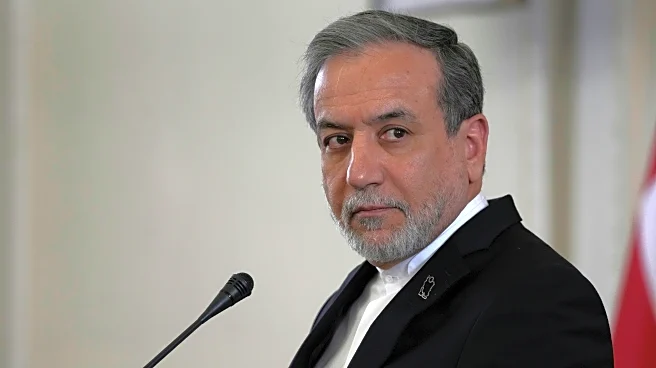What's Happening?
Mike Gibbons, aged 89, is the oldest competitor at the World Transplant Games, attributing his participation to a kidney donation from his wife, Ann. Gibbons has been competing since 2008, a year after receiving the life-saving transplant. He recently won medals in squash and athletics at the British Transplant Games and will compete in the under-90s age group at the World Transplant Games in Dresden, Germany. Despite Ann now living in a care home due to dementia, Gibbons honors her by carrying a picture of them together at every race. He was initially against the donation but eventually agreed, leading to a successful surgery in Bradford.
Why It's Important?
The story highlights the profound impact of organ donation, showcasing how it can extend and improve lives. Gibbons' experience underscores the importance of donor programs and the life-changing potential they hold for recipients. His participation in the games serves as an inspiration, demonstrating resilience and gratitude. The narrative also brings attention to the emotional and personal dimensions of organ donation, emphasizing the enduring bond between donor and recipient. This can encourage more people to consider becoming donors, potentially increasing the number of lives saved through such programs.
What's Next?
Gibbons plans to celebrate his 90th birthday with a trip to the Antarctic, reflecting his passion for mountaineering and exploration. His continued participation in the Transplant Games may inspire others in similar situations to engage in athletic activities, promoting health and well-being post-transplant. The story may also lead to increased awareness and support for organ donation initiatives, potentially influencing public policy and healthcare practices to facilitate more successful transplants.
Beyond the Headlines
The story touches on the ethical and emotional aspects of organ donation, highlighting the personal sacrifices and decisions involved. It raises awareness about the challenges faced by families dealing with health issues and the importance of support systems. The narrative also reflects broader societal values around health, aging, and the celebration of life, encouraging a positive outlook on aging and the possibilities it holds.










